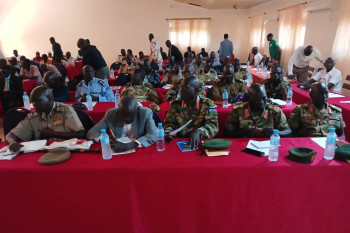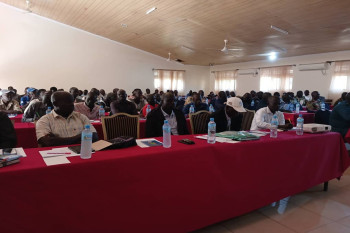Building Bridges and Sharing Knowledge
South Sudan's media landscape plays a crucial role in informing the public and promoting social progress. Recognizing this, the Media Authority recently joined hands with Non-Governmental Organizations (NGOs) for a collaborative training. The workshop brought together journalists, media practitioners, and NGO representatives. The initiative aimed to foster stronger communication and understanding among these sectors.
The agenda focused on:
1.Effective Communication Strategies:
Participants explored best practices for NGOs to communicate their work clearly and concisely through media channels. This included crafting press releases, pitching stories to journalists, and utilizing social media effectively.
2. Reporting on Development Issues:
Journalists gained a deeper understanding of the challenges and successes faced by NGOs in South Sudan. This knowledge equips them to report on development issues with greater accuracy and context.
3. Safety and Security Considerations:
The workshop addressed the importance of safety for both journalists and NGO workers operating in potentially challenging environments.
4. A Collaborative Future:
This workshop signifies a positive step towards a more collaborative relationship between the media and NGOs in South Sudan. By working together, they ensure that critical information about development efforts reaches the public, fostering greater transparency and accountability.
The Benefits of Collaboration:
1. Improved Public Awareness:
Stronger communication helps raise public awareness about the work of NGOs and the issues they address.
2. Enhanced Impact:
Informed reporting allows NGOs to better showcase their impact and attract further support for their initiatives.
3. Promoting Peace and Development:
Collaborative efforts can contribute to peacebuilding and development by fostering understanding and encouraging public participation
Media Authority and the participating NGOs expressed their commitment to continued collaboration. Future initiatives may include joint training programs, media briefings on development topics, and the creation of communication channels to facilitate smoother information exchange.

